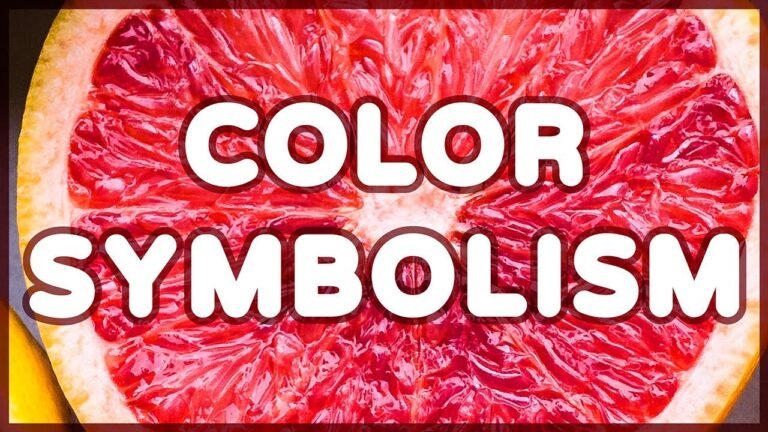The Biblical Significance of the Rose of Sharon
The Rose of Sharon, a phrase that resonates deeply within biblical scripture, symbolizes beauty, love, and divine grace. Often associated with the Song of Solomon, this enchanting flower captures the essence of spiritual and romantic longing, making it a powerful metaphor in both religious and poetic contexts. Exploring the Rose of Sharon’s biblical meaning reveals layers of significance that transcend time, inviting reflection on themes of hope and renewal in our lives. As we delve into its rich symbolism, we uncover not just a flower, but a profound representation of faith and connection to the divine.
What does the Rose of Sharon symbolize spiritually?
The Rose of Sharon holds profound spiritual significance, embodying themes of maturation and sanctity. This vibrant flower represents the transformative power of maternal love, illustrating how a mother’s influence extends beyond mere biology and family ties. Through its beauty, the Rose of Sharon serves as a reminder of the nurturing spirit that has the capacity to heal and save, highlighting the sacred bond that connects us all to divine grace.
What is the significance of Sharon in the Bible?
In the Bible, Sharon represents a fertile and flourishing landscape, symbolizing beauty and abundance. Specifically, it refers to the lush plain situated at the foot of Mount Carmel, known for its rich vegetation and agricultural prosperity. This area captures the essence of growth and vitality, making it a significant geographical and symbolic reference in biblical texts.
The name Sharon, derived from this biblical context, embodies the qualities of fertility and grace. It is notably mentioned in the Song of Solomon, where the beloved Schulamite woman is poetically described as a flower of Sharon, highlighting her beauty and desirability. This connection reinforces the idea of Sharon as a representation of both physical and spiritual flourishing, making it a powerful symbol of love and devotion in biblical literature.
What does Rose of Sharon mean?
The term “Rose of Sharon” evokes images of beauty and grace, often associated with the exquisite qualities of a blooming flower. In Christian symbolism, it represents not just physical beauty but also the deeper virtues of love, purity, and hope. This metaphor serves to inspire individuals, reminding them of the fragrant essence they can carry into the world.
As disciples venture forth, they embody the spirit of the Rose of Sharon, spreading a fragrance of kindness and compassion. This powerful imagery encourages believers to cultivate their inner beauty and share it with others, enriching their communities. The Rose of Sharon thus stands as a timeless emblem of the transformative qualities that can flourish when one embraces their true essence.
Unveiling the Symbolism of a Timeless Flower
The delicate beauty of the flower has long captivated the human spirit, serving as a powerful symbol of love, resilience, and renewal across cultures. Each petal, with its unique hue and form, tells a story of nature’s artistry, inviting us to reflect on our emotions and connections. From the passionate red rose representing romance to the pure white lily symbolizing purity, flowers speak a universal language that transcends time and geography, reminding us of the intricate relationship between our experiences and the natural world.
As we delve deeper into the symbolism of this timeless flower, we uncover layers of meaning that resonate with our lives. The cyclical nature of blooming and wilting mirrors our own journeys of growth and transformation, teaching us that beauty often emerges from adversity. Whether gracing a garden, adorning a wedding bouquet, or providing solace in times of sorrow, the flower remains an enduring emblem of hope and continuity, encouraging us to cherish the fleeting moments of life while embracing the promise of new beginnings.
Exploring the Spiritual Essence of Sharon’s Rose
Sharon’s Rose, with its delicate petals and enchanting fragrance, embodies a profound spiritual essence that transcends mere beauty. Each bloom serves as a reminder of resilience and renewal, symbolizing the journey of the soul through trials and triumphs. As light dances upon its vibrant hues, one can’t help but feel a connection to nature’s wisdom, inspiring inner growth and mindfulness. This extraordinary flower invites us to pause, reflect, and embrace the transformative power of love and compassion, reminding us that even in the harshest conditions, beauty can flourish and illuminate our path.
A Deep Dive into Biblical Botany and Meaning
Exploring the intricate relationship between plants and biblical narratives reveals a profound understanding of nature intertwined with spirituality. From the majestic cedar of Lebanon to the humble mustard seed, each plant mentioned in the Scriptures carries symbolic weight, reflecting themes of growth, resilience, and divine providence. These botanical elements not only enrich the stories but also serve as metaphors for spiritual truths, inviting readers to see the world through a lens of creation that is both beautiful and deeply meaningful.
The Bible often uses flora to convey moral lessons and divine messages. For instance, the vine represents connection and community, illustrating the importance of relationships in spiritual growth. Similarly, the olive tree symbolizes peace and endurance, reminding us of the enduring hope found in faith. Through these vivid illustrations, the Scriptures encourage believers to cultivate their inner lives, drawing parallels between the nurturing of plants and the development of one’s character and faith.
As we delve deeper into biblical botany, we uncover a tapestry of interwoven meanings that can inspire and guide our lives today. By recognizing the significance of these plants, we not only appreciate their ecological roles but also embrace the spiritual lessons they offer. This exploration invites us to reflect on our own growth and connection to the world around us, prompting a journey of discovery that enriches both our understanding of nature and our spiritual lives.
The Rose of Sharon: Beauty and Divine Revelation
The Rose of Sharon, a symbol of beauty and resilience, captivates with its striking blossoms that flourish even in the harshest of environments. This vibrant flower, often associated with love and grace, enchants gardens and landscapes with its lush petals and aromatic fragrance. Its ability to thrive under diverse conditions mirrors the human spirit’s capacity for growth and renewal, reminding us that beauty often emerges from adversity.
In many cultures, the Rose of Sharon carries deep spiritual significance, representing divine love and revelation. Its presence in religious texts highlights its role as a symbol of hope and enlightenment, inviting individuals to seek deeper connections with the divine. The flower’s layered petals serve as a metaphor for the complexities of faith, illustrating how beauty can be found within the intricacies of life and spirituality.
As the seasons change, the Rose of Sharon continues to bloom, inspiring awe and reflection. Its enduring presence encourages us to appreciate the fleeting moments of beauty in our lives while fostering a sense of gratitude for the divine gifts that surround us. In a world often overshadowed by challenges, the Rose of Sharon stands as a beacon of hope, reminding us that even in struggles, we can find moments of grace and inspiration.
The Rose of Sharon stands as a powerful symbol within biblical texts, representing beauty, love, and renewal. Its imagery resonates deeply, evoking themes of hope and divine presence in both personal and communal contexts. As individuals reflect on its significance, the Rose of Sharon invites a deeper exploration of faith, encouraging a blossoming connection to one’s spiritual journey. Embracing this symbol can inspire a renewed appreciation for the transformative power of grace and the enduring promise of new beginnings.







